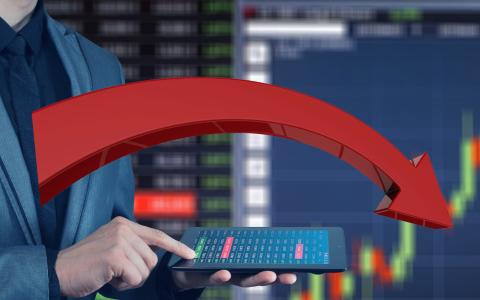
(Fox Business) - The U.S. stock market soared to a new record high over the past week, but there may still be trouble on the horizon, according to JPMorgan analysts.
The forecast from JPMorgan's chief market strategist Marko Kolanovic is one of the most pessimistic on Wall Street. He and his peers see the S&P 500 ending the year at 4,200 — the lowest year-end target among major Wall Street banks. From current levels, that implies a more than 21% drop.
"With very high equity valuations, we do not see equities as attractive investments at the moment, and we don't see a reason to change our stance," Kolanovic wrote in an analyst note this week.
Stocks have notched record highs over the past week, with the Dow Jones Industrial Average topping 40,000 for the first time ever, while the S&P 500 climbed past 5,300.
The indexes were little changed on Wednesday as investors awaited earnings from Nvidia and meeting minutes from the Federal Reserve that could shed light on the timing of interest rate cuts.
But Kolanovic suggested the gains are unlikely to last, with interest rates likely to remain in restrictive territory for longer amid signs of stubborn inflation, evidence of weakness among lower-income consumers and growing geopolitical uncertainty.
A boost from artificial intelligence is unlikely to offset the other risks, he warned.
"We don't think that narrow themes like AI chips can compensate for all of those traditional market challenges that historically worked against the cycle," Kolanovic said.
The gloomy forecast comes after a volatile year for the stock market.
All three indexes tumbled in mid-2023 amid fears the Federal Reserve would raise interest rates higher than previously expected — and hold them at peak levels for longer. But they have recouped those losses and more, with the S&P 500 up more than 29% since it hit bottom at the end of October.
Since the start of the year, the benchmark index is up about 11.5%, while the Dow Jones Industrial Average has climbed 5.5%, or about 2,098 points. The tech-heavy Nasdaq Composite, meanwhile, has increased about 12% year to date.
By Megan Henney



